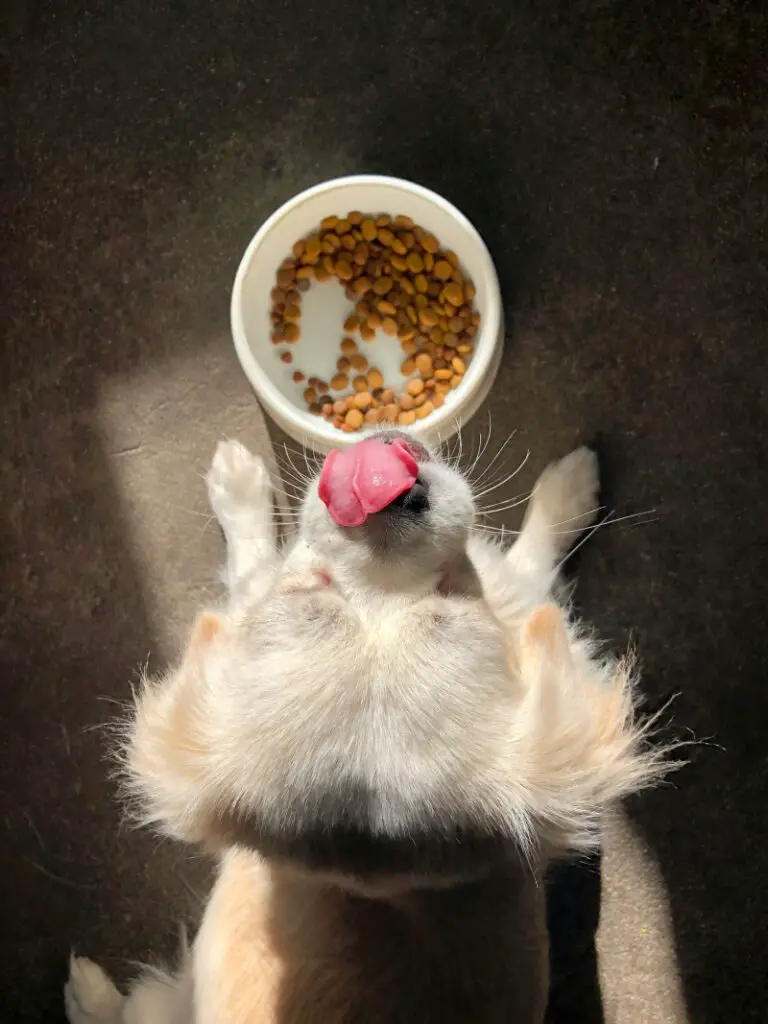Table of Contents
What Can Dogs Eat: Understanding Canine Nutrition and Diet
In order to know how and what to feed a dog, we must first understand what its nutritional requirements are. “What can dogs eat?” is a question many pet owners ask, and it’s important to know the best options for their health and well-being.
What Can Dogs Eat: Balancing a Dog’s Diet
Although domestic dogs are largely carnivorous, many of their nutritional needs cannot be met through meat alone. Their dental structure and intestinal tract have evolved to adapt to an omnivorous diet. This means that dogs can eat both animal and plant foods, contrary to the common belief that they are strictly meat-eaters.
Read VCA’s Feeding Guidelines for Dogs.
The Best Food for Dogs: A Guide to Canine Nutrition
A strictly carnivorous diet is unbalanced and doesn’t meet all of a dog’s nutritional needs. The best food for a dog includes a balanced diet of protein, fat, carbohydrates, fiber, vitamins, minerals, and water. High-quality meats, grains, fruits, and vegetables, suitable for the canine digestive system, are essential.
What Can Dogs Eat: Diet Types and Preferences
There are various recommended diets for dogs, but it’s difficult to pinpoint the best one as each dog is an individual. Some common diets include:
- Dry kibble (croquettes)
- Kibble combined with human food like meat, fish, vegetables, rice (cooked or raw)
- Canned food
- Homemade meals
- Raw diet
- Meat-based diet
- Plant-based diet
- Grain-free or low-grain diets
Visit AKC’s Guide on Choosing Dog Food.
What Can Dogs Eat According to Their Age?
Dogs’ nutritional needs change with age. From newborns to seniors, it’s crucial to feed them the right food at each life stage.
Newborn to 1 Month: Milk is Essential
For newborn puppies, mother’s milk or a dog milk formula is crucial. Bottle feeding may be necessary if mother’s milk isn’t available.
1-Month-Old Puppies: Transitioning to Solid Food
At around one month, puppies start transitioning to soft or semi-solid food, often a mix of milk formula and canned dog food or moistened dry kibble.
2 to 4 Months: Introduction to Solid Food
By 7-8 weeks, puppies should start eating solid dry puppy food, with occasional additions of meat, rice, or cooked vegetables. Raw diets are not recommended for very young puppies.
5 Months and Older: Diversifying Diet
As puppies grow, they can start trying new foods suitable for dogs, with careful monitoring for any signs of intolerance or allergies.
Adult Dogs: Maintaining a Balanced Diet
Adult dogs typically eat commercial dog food (dry or wet), combined with safe human foods. Balance and moderation are key.
Senior Dogs: Tailored Diets for Health
Older dogs may need dietary adjustments based on their health conditions. Consult a vet for personalized advice.
Human Foods Dogs Can Eat
Many human foods are safe for dogs, including meats like chicken and beef, certain fish, liver, eggs, rice, oatmeal, some cheeses, plain yogurt, and various fruits and vegetables.
What Dogs Shouldn’t Eat: Avoiding Toxins
Be aware of foods that are toxic to dogs, like chocolate, grapes, macadamia nuts, garlic, onion, xylitol, ice cream, coffee, tea, alcohol, raw yeast dough, and processed foods.
Continuing with the theme of “What can dogs eat?,” it’s important to also focus on the way we feed our dogs. Alongside choosing the right foods, the manner and frequency of feeding play a crucial role in a dog’s health. Regular, portion-controlled meals are better than free feeding to avoid obesity. Also, when introducing new foods, it’s advisable to do so gradually to prevent digestive upset.
Additionally, hydration is as important as diet. Ensure that your dog has constant access to fresh water, especially when their diet includes dry food. Remember, each dog has unique needs, so consult your veterinarian regularly to tailor the diet as your dog ages or if health issues arise. By understanding and catering to your dog’s dietary needs, you can ensure a happy, healthy life for your furry companion. This approach embodies the essence of “What can dogs eat?” – a question that goes beyond mere food choices to encompass overall care and well-being.




